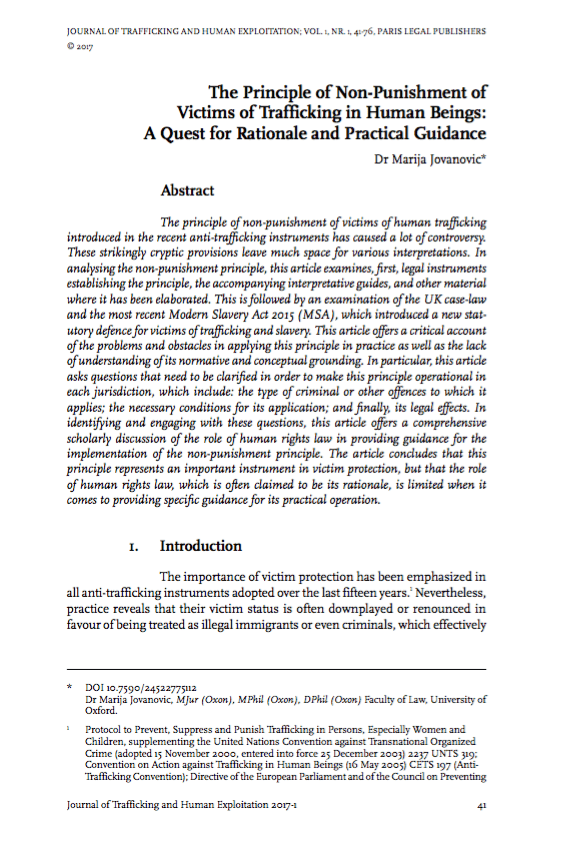
The Principle of Non-Punishment of Victims of Trafficking in Human Beings: A Quest for Rationale and Practical Guidance
The principle of non-punishment of victims of human trafficking introduced in the recent anti-trafficking instruments has caused a lot of controversy. These strikingly cryptic provisions leave much space for various interpretations. In analysing the non-punishment principle, this article examines, first, legal instruments establishing the principle, the accompanying interpretative guides, and other material where it has been elaborated. This is followed by an examination of the UK case-law and the most recent Modern Slavery Act 2015 (MSA), which introduced a new statutory defence for victims of trafficking and slavery. This article offers a critical account of the problems and obstacles in applying this principle in practice as well as the lack of understanding of its normative and conceptual grounding. In particular, this article asks questions that need to be clarified in order to make this principle operational in each jurisdiction, which include: the type of criminal or other offences to which it applies; the necessary conditions for its application; and finally, its legal effects. In identifying and engaging with these questions, this article offers a comprehensive scholarly discussion of the role of human rights law in providing guidance for the implementation of the non-punishment principle. The article concludes that this principle represents an important instrument in victim protection, but that the role of human rights law, which is often claimed to be its rationale, is limited when it comes to providing specific guidance for its practical operation.
